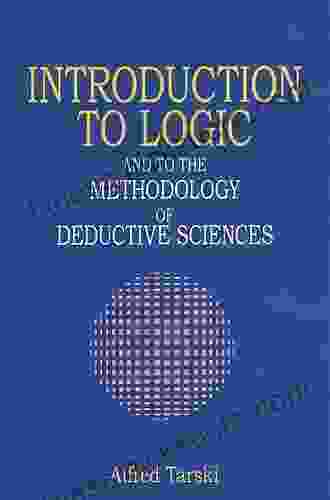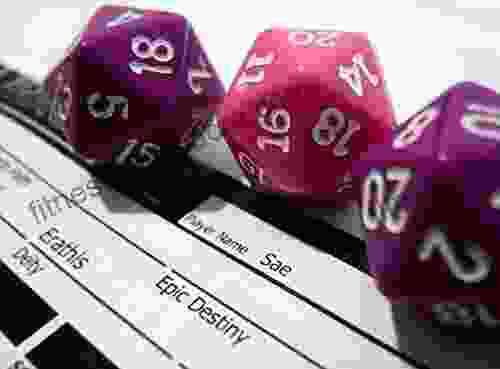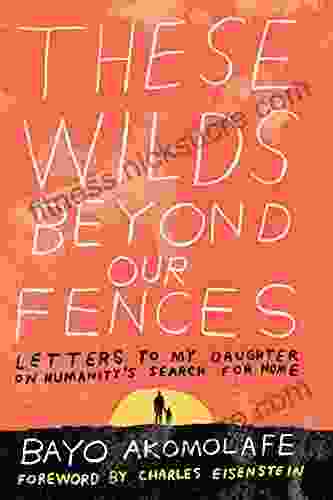And To The Methodology Of Deductive Sciences Dover On Mathematics

to Deductive Sciences
Deductive sciences, also known as formal sciences or axiomatic sciences, are a branch of knowledge that relies on logical reasoning and mathematical structures to derive new knowledge from established premises or axioms. These sciences employ deductive reasoning, a fundamental principle of logic that allows for the derivation of s that are necessarily true if the premises are true.
4.4 out of 5
| Language | : | English |
| File size | : | 1953 KB |
| Text-to-Speech | : | Enabled |
| Screen Reader | : | Supported |
| Enhanced typesetting | : | Enabled |
| Word Wise | : | Enabled |
| Print length | : | 260 pages |
| Lending | : | Enabled |
Deductive sciences play a pivotal role in various disciplines, including mathematics, computer science, and philosophy. They provide a rigorous framework for knowledge representation, reasoning, and the development of theories and models. Understanding the methodology and foundations of deductive sciences is crucial for appreciating their significance and applications in a wide range of fields.
Methodology of Deductive Sciences
The methodology of deductive sciences is characterized by the use of logical reasoning and formal systems. Logical reasoning involves applying rules of inference, such as modus ponens and modus tollens, to derive new statements from a set of given statements. Formal systems are symbolic representations of logical theories that consist of a set of axioms and rules of inference.
In deductive sciences, axioms serve as the fundamental building blocks of knowledge. They are statements that are assumed to be true without requiring any further justification. Axioms are the starting point for deductive reasoning, and all subsequent statements and s must be logically derived from them.
Foundations of Deductive Sciences
The foundations of deductive sciences lie in the principles of logic and set theory. Logic provides the rules and principles for constructing valid arguments and determining whether s follow logically from premises.
Set theory, on the other hand, provides a framework for representing and manipulating mathematical objects, such as numbers, sets, and functions. It is essential for the development of formal systems and the axiomatization of various mathematical theories.
Applications of Deductive Sciences
Deductive sciences have a wide range of applications across various disciplines. In mathematics, they are used to develop axiomatic systems for number theory, geometry, and algebra. In computer science, deductive reasoning is employed in automated theorem proving and program verification.
In philosophy, deductive methods are used to analyze arguments and construct logical systems. Deductive sciences also find applications in linguistics, cognitive psychology, and artificial intelligence, among other fields.
Deductive sciences provide a powerful framework for knowledge acquisition and scientific progress. Their methodology, based on logical reasoning and formal systems, ensures the validity and reliability of derived s. The foundations of deductive sciences in logic and set theory provide a solid basis for the development of axiomatic systems and mathematical theories.
The applications of deductive sciences extend far beyond mathematics, reaching into fields such as computer science, philosophy, and linguistics. They play a vital role in advancing our understanding of the world and in developing new technologies and applications.
References
- Hodges, W. (2006). Logic: An . Cambridge University Press.
- Jech, T. (2002). Set theory. Springer Science & Business Media.
- Kleene, S. C. (1952). to metamathematics. North-Holland Publishing Company.
- Enderton, H. B. (2001). A mathematical to logic. Academic Press.
- Mendelson, E. (1997). to mathematical logic. Chapman and Hall/CRC.
4.4 out of 5
| Language | : | English |
| File size | : | 1953 KB |
| Text-to-Speech | : | Enabled |
| Screen Reader | : | Supported |
| Enhanced typesetting | : | Enabled |
| Word Wise | : | Enabled |
| Print length | : | 260 pages |
| Lending | : | Enabled |
Do you want to contribute by writing guest posts on this blog?
Please contact us and send us a resume of previous articles that you have written.
 Fiction
Fiction Non Fiction
Non Fiction Romance
Romance Mystery
Mystery Thriller
Thriller SciFi
SciFi Fantasy
Fantasy Horror
Horror Biography
Biography Selfhelp
Selfhelp Business
Business History
History Classics
Classics Poetry
Poetry Childrens
Childrens Young Adult
Young Adult Educational
Educational Cooking
Cooking Travel
Travel Lifestyle
Lifestyle Spirituality
Spirituality Health
Health Fitness
Fitness Technology
Technology Science
Science Arts
Arts Crafts
Crafts DIY
DIY Gardening
Gardening Petcare
Petcare David G Kingdon
David G Kingdon Neil J Salkind
Neil J Salkind Joshua Coleman Phd
Joshua Coleman Phd Vicki Manning
Vicki Manning Tracy Anderson
Tracy Anderson Sam Thoma
Sam Thoma Suzy Amis Cameron
Suzy Amis Cameron Michael J Behe
Michael J Behe Ali Novak
Ali Novak Alexandra M Levitt
Alexandra M Levitt Anymom
Anymom Ellen Kane
Ellen Kane Alexandra Heminsley
Alexandra Heminsley Mark Rippetoe
Mark Rippetoe Michael R Lindeburg
Michael R Lindeburg Clay Bonnyman Evans
Clay Bonnyman Evans Charlie N Holmberg
Charlie N Holmberg Gary Wayne
Gary Wayne Courtney Kenney
Courtney Kenney Jason Selk
Jason Selk Deborah Laird Meeks
Deborah Laird Meeks Christopher Steiner
Christopher Steiner Peter Gandy
Peter Gandy Whitney Miller
Whitney Miller Robert A Monroe
Robert A Monroe Bayo Akomolafe
Bayo Akomolafe Kev Reynolds
Kev Reynolds Howard Pyle
Howard Pyle Alfred Begum
Alfred Begum Lara Carter
Lara Carter Milly Buonanno
Milly Buonanno Scott Linden
Scott Linden Eric Mantle
Eric Mantle Patti M Hummel
Patti M Hummel Alice Kuipers
Alice Kuipers Normandi Ellis
Normandi Ellis Henry Gilbert
Henry Gilbert Alice Boyes Ph D
Alice Boyes Ph D Andrew Yueh
Andrew Yueh Carolyn Highland
Carolyn Highland Judy Murray
Judy Murray Karin Slaughter
Karin Slaughter Jen Noonan
Jen Noonan Michaelbrent Collings
Michaelbrent Collings Jerry Lynch
Jerry Lynch Stephen Altschuler
Stephen Altschuler Daniel Young
Daniel Young Zac Unger
Zac Unger Mark Harris
Mark Harris Jean Chatzky
Jean Chatzky Robert Zimmerman
Robert Zimmerman David G Alciatore
David G Alciatore Executivegrowth Summaries
Executivegrowth Summaries George Takei
George Takei Craig S Brantley
Craig S Brantley Arno Ilgner
Arno Ilgner Robert Scott
Robert Scott David Maidment
David Maidment Reina Donovan
Reina Donovan Paul Stephenson
Paul Stephenson Kirstin Cronn Mills
Kirstin Cronn Mills Susan Albers
Susan Albers Michele Filgate
Michele Filgate Robert P Crease
Robert P Crease Donna Bozzo
Donna Bozzo Sue Tidwell
Sue Tidwell Jeremy Hance
Jeremy Hance Sarah Rayner
Sarah Rayner Dan Aadland
Dan Aadland Paul Asay
Paul Asay Jermaine Harris
Jermaine Harris Joe Proulx
Joe Proulx Matthew Bowling
Matthew Bowling Charles Hainsworth
Charles Hainsworth Carmen Martinez Jover
Carmen Martinez Jover Joel Weinberger
Joel Weinberger Wade Davis
Wade Davis Lyanda Lynn Haupt
Lyanda Lynn Haupt Romina Garber
Romina Garber Jeremy Benson
Jeremy Benson Sharon Powell
Sharon Powell Christopher Mitchell
Christopher Mitchell William King
William King Arthur Robert Harding
Arthur Robert Harding John C Hudson
John C Hudson Mary Cholmondeley
Mary Cholmondeley Hape Kerkeling
Hape Kerkeling Alexis L Boylan
Alexis L Boylan Laura Katz
Laura Katz Adrian Dingle
Adrian Dingle Carlton Kirby
Carlton Kirby Nancy Roe Pimm
Nancy Roe Pimm Gabriel Aluisy
Gabriel Aluisy Jim Walden
Jim Walden David A Askay
David A Askay Hicham And Mohamed Ibnalkadi
Hicham And Mohamed Ibnalkadi Penelope Freed
Penelope Freed Kathy Barker
Kathy Barker Scott Chimileski
Scott Chimileski Vishal Sambharya
Vishal Sambharya Eric Layton
Eric Layton Tasha Alexander
Tasha Alexander Emily Riehl
Emily Riehl Alice Beck Kehoe
Alice Beck Kehoe Jenna Ortega
Jenna Ortega Thomas Hill
Thomas Hill Alice Gorman
Alice Gorman Sacha Black
Sacha Black Ryuu Shinohara
Ryuu Shinohara John Madieu
John Madieu Peter Flom
Peter Flom Diana Hudson
Diana Hudson Emily Levesque
Emily Levesque Joeanna Rebello Fernandes
Joeanna Rebello Fernandes Alexis Averbuck
Alexis Averbuck Alfred Tarski
Alfred Tarski Jessica Goodman
Jessica Goodman Suzanne Giesemann
Suzanne Giesemann Melissa Falkowski
Melissa Falkowski Susan Jules
Susan Jules Duncan Hines
Duncan Hines Jessica Riskin
Jessica Riskin David R Hawkins
David R Hawkins Frank C Hawkins
Frank C Hawkins Brigid Moss
Brigid Moss Michael Thorp
Michael Thorp Amy Pickar Abernethy
Amy Pickar Abernethy Alice Cooper
Alice Cooper John Pagano
John Pagano Yvette Marquez Sharpnack
Yvette Marquez Sharpnack Malala Yousafzai
Malala Yousafzai Jessica Long
Jessica Long Lauren Harris
Lauren Harris David Watson
David Watson Lola Glass
Lola Glass Alexandra Brodsky
Alexandra Brodsky Pottermore Publishing
Pottermore Publishing Thomas Horn
Thomas Horn Ian Morris
Ian Morris America S Test Kitchen
America S Test Kitchen John F Gilbey
John F Gilbey Lynne Cox
Lynne Cox Peter Collier
Peter Collier Mark Zondo
Mark Zondo Wendy Currie
Wendy Currie Jonathan Weiner
Jonathan Weiner Thomas F King
Thomas F King Kathy Gunst
Kathy Gunst Alice Borchardt
Alice Borchardt David Travis
David Travis Paul Green
Paul Green Michael Clark
Michael Clark Karen Kovacs
Karen Kovacs Sammy Hagar
Sammy Hagar Elizabeth Clare Prophet
Elizabeth Clare Prophet Scott Weems
Scott Weems Heinrich Cornelius Agrippa Von Nettesheim
Heinrich Cornelius Agrippa Von Nettesheim Alfred Tennyson
Alfred Tennyson Corky Pollan
Corky Pollan Carol Ekarius
Carol Ekarius Karyl Rickard
Karyl Rickard Ken Mink
Ken Mink Eric Kaplan
Eric Kaplan Sabina Khan
Sabina Khan Chase Kosterlitz
Chase Kosterlitz Jill Simonian
Jill Simonian Sir Oliver Lodge
Sir Oliver Lodge Bear Grylls
Bear Grylls Lara Alcock
Lara Alcock John Bemelmans Marciano
John Bemelmans Marciano Karin Perry
Karin Perry Kathryn A Bard
Kathryn A Bard Complete Test Preparation Inc
Complete Test Preparation Inc Luke Reynolds
Luke Reynolds Stuart Kauffman
Stuart Kauffman Robert Lusetich
Robert Lusetich Alfred Edersheim
Alfred Edersheim Lance Akiyama
Lance Akiyama Richard Moore
Richard Moore Matthew Cowsert
Matthew Cowsert Arthur Lydiard
Arthur Lydiard Seabury Blair
Seabury Blair Karl Wiegers
Karl Wiegers Crysta Mchenry
Crysta Mchenry Nancy Carpentier Brown
Nancy Carpentier Brown David Armitage
David Armitage Daniel Foor Phd
Daniel Foor Phd Ali Velez Alderfer
Ali Velez Alderfer Bernie Clark
Bernie Clark Matilda Betham
Matilda Betham Carl Erskine
Carl Erskine Whitney Ferre
Whitney Ferre Lydia Wylie Kellermann
Lydia Wylie Kellermann Doc Norton
Doc Norton John G West
John G West Alice Jolly
Alice Jolly Alice June
Alice June Laura Gauld
Laura Gauld Hans Rosling
Hans Rosling Ben Applebaum
Ben Applebaum George S Fichter
George S Fichter Larry Baush
Larry Baush Patrick Ness
Patrick Ness Penny Armstrong
Penny Armstrong Rin Chupeco
Rin Chupeco Ted Zeff
Ted Zeff Keisuke Andrew
Keisuke Andrew Heather Lang
Heather Lang Jon Moxley
Jon Moxley Anna Mathur
Anna Mathur Kynan Bridges
Kynan Bridges Susan Wise Bauer
Susan Wise Bauer Alina Adams
Alina Adams Jodi L Weinstein
Jodi L Weinstein Samantha Cattach
Samantha Cattach Sir E A Wallis Budge
Sir E A Wallis Budge Minda Harts
Minda Harts Nick Kalyn
Nick Kalyn Emma Lock
Emma Lock Sarah K L Wilson
Sarah K L Wilson Jonathan Carroll
Jonathan Carroll Lindsay Grace
Lindsay Grace Brian D Ambrosio
Brian D Ambrosio Grackle Pigeon
Grackle Pigeon Jim Vance
Jim Vance Daniel M Davis
Daniel M Davis Ali Wong
Ali Wong Virgil Herring
Virgil Herring Gary A Klein
Gary A Klein Andrew Zimmern
Andrew Zimmern Alice Steinbach
Alice Steinbach Philip Freeman
Philip Freeman John Abramson
John Abramson Melia Keeton Digby
Melia Keeton Digby Bassem R Mahafza
Bassem R Mahafza Ryan Guldberg
Ryan Guldberg Frank White
Frank White Oivind Andersson
Oivind Andersson Nick Littlehales
Nick Littlehales Dan Jenkins
Dan Jenkins Daniel Goleman
Daniel Goleman Anthony Legins
Anthony Legins Constantine A Balanis
Constantine A Balanis Bob Toski
Bob Toski Nora Roberts
Nora Roberts Alexia Leachman
Alexia Leachman Jim Mclean
Jim Mclean Stacey L Bradford
Stacey L Bradford Sarah Melland
Sarah Melland Peter J Hotez
Peter J Hotez Rosary O Neill
Rosary O Neill Roddy Scheer
Roddy Scheer John Pirillo
John Pirillo Tim Weston
Tim Weston Michael Vlessides
Michael Vlessides Stephanie Mitchell Cnm Msn Dnp
Stephanie Mitchell Cnm Msn Dnp Paige Wolf
Paige Wolf Steven Pressfield
Steven Pressfield Mary Johnson
Mary Johnson Joy S Kasson
Joy S Kasson Dianna L Van Blerkom
Dianna L Van Blerkom Alicia Puglionesi
Alicia Puglionesi Alice Miller
Alice Miller Pam Withers
Pam Withers Thomas Hund
Thomas Hund Tim R Swartz
Tim R Swartz Mary Kay Andrews
Mary Kay Andrews Alexandra Kennon
Alexandra Kennon Dagny Scott Barrios
Dagny Scott Barrios Frank Amthor
Frank Amthor Jeff Sambur
Jeff Sambur Aris Spanos
Aris Spanos Sarah Bolitho
Sarah Bolitho Aram Attarian
Aram Attarian Wendy Wood
Wendy Wood Ali Katz
Ali Katz Eleanor Drago Severson
Eleanor Drago Severson Alexei Yurchak
Alexei Yurchak Josh Peter
Josh Peter Heather Baker
Heather Baker Patricia A Mckillip
Patricia A Mckillip Lonely Planet
Lonely Planet Dean Pohlman
Dean Pohlman G Pascal Zachary
G Pascal Zachary Kathleen Mcauliffe
Kathleen Mcauliffe Stephen Blyth
Stephen Blyth Judith Levin
Judith Levin Theodore Roosevelt
Theodore Roosevelt Neil Schulenburg
Neil Schulenburg Helen Hodgson
Helen Hodgson Udo Schaefer
Udo Schaefer Rev Cain
Rev Cain Ali Almossawi
Ali Almossawi Michael Johnson
Michael Johnson Bjorn Kjellstrom
Bjorn Kjellstrom Mary Beth Knight
Mary Beth Knight Elan Golomb
Elan Golomb Mikel Jollett
Mikel Jollett Li Ming Lee
Li Ming Lee Michelle Rotteau
Michelle Rotteau Alfred Lambremont Webre
Alfred Lambremont Webre David J Rothman
David J Rothman William G Tapply
William G Tapply Katie Walsh Flanagan
Katie Walsh Flanagan Alice Walker
Alice Walker Joe Dolio
Joe Dolio Frank J Tipler
Frank J Tipler Joseph Henrich
Joseph Henrich Jose Albani
Jose Albani Malina Malkani Ms Rdn Cdn
Malina Malkani Ms Rdn Cdn Mark C Purcell
Mark C Purcell Peter Stark
Peter Stark Michael Patrick Ghiglieri
Michael Patrick Ghiglieri Krissy Moehl
Krissy Moehl Roy Barth
Roy Barth Valora Conciencia En Los Medios
Valora Conciencia En Los Medios Penelope Leach
Penelope Leach M Mitchell Waldrop
M Mitchell Waldrop Rails To Trails Conservancy
Rails To Trails Conservancy Karin Bojs
Karin Bojs Charles Murray
Charles Murray Jay Greenberg
Jay Greenberg Erica Lyon
Erica Lyon Lynne Robinson
Lynne Robinson Douglas Starr
Douglas Starr Shaun David Hutchinson
Shaun David Hutchinson Alexis Marie Chute
Alexis Marie Chute Phillip Starr
Phillip Starr Jayson Georges
Jayson Georges Dr C
Dr C Avi Gordon
Avi Gordon Nel Noddings
Nel Noddings Matthew Silverman
Matthew Silverman Alexis C Bunten
Alexis C Bunten German Raigosa
German Raigosa Les Adams
Les Adams Eric Siegel
Eric Siegel Alice Roberts
Alice Roberts Alice Nobile
Alice Nobile Norman L Keltner
Norman L Keltner Terry Marsh
Terry Marsh Ernie Palladino
Ernie Palladino Robert Kagan
Robert Kagan Arthur Ashe
Arthur Ashe Mike Westin
Mike Westin Becca Maberly
Becca Maberly Alexey Zimarev
Alexey Zimarev Martha Shirk
Martha Shirk Stephen Ilg
Stephen Ilg Allison Saft
Allison Saft Gordon England
Gordon England Tracy Becker
Tracy Becker Roland Huntford
Roland Huntford Kenn Bivins
Kenn Bivins Joshua R Eyler
Joshua R Eyler Alexandra Mayzler
Alexandra Mayzler David Byrne
David Byrne Shannon Messenger
Shannon Messenger Carol Chaitkin
Carol Chaitkin Dylan Farrow
Dylan Farrow Alexandra Robbins
Alexandra Robbins Lawrence Weschler
Lawrence Weschler Deborah Layton
Deborah Layton Robin G Jordan
Robin G Jordan Erez Morabia
Erez Morabia David Gessner
David Gessner Randy Spencer
Randy Spencer Andy Kirkpatrick
Andy Kirkpatrick Michael Mcteigue
Michael Mcteigue Jack Batten
Jack Batten Leslie Berlin
Leslie Berlin George Beinhorn
George Beinhorn Jay Golden
Jay Golden Damon Centola
Damon Centola Chip K
Chip K Peter D Rogers
Peter D Rogers Patrick Torsell
Patrick Torsell Tim Maudlin
Tim Maudlin Alexandria Moran
Alexandria Moran Ally Nathaniel
Ally Nathaniel Paul Wilmott
Paul Wilmott Richard Preston
Richard Preston Louis Borgenicht
Louis Borgenicht Eileen Edna Power
Eileen Edna Power Jonny Bowden
Jonny Bowden Beccy Hands
Beccy Hands Mike Dauplaise
Mike Dauplaise Mitchell P Jones
Mitchell P Jones Frederick Courteney Selous
Frederick Courteney Selous Alicia Ranoldo
Alicia Ranoldo John Lohn
John Lohn Natalie Angier
Natalie Angier Alexandra Bracken
Alexandra Bracken Brent Warner
Brent Warner K T Hanna
K T Hanna Zar Petkov
Zar Petkov Thao Doan
Thao Doan Margaret Starbird
Margaret Starbird Steve O Hearn
Steve O Hearn Alfie Kohn
Alfie Kohn Said Hasyim
Said Hasyim Richard H Coop
Richard H Coop Mike Wallace
Mike Wallace Guy Hunter Watts
Guy Hunter Watts Jeff Cooper
Jeff Cooper Ruby Vincent
Ruby Vincent Paul H Frampton
Paul H Frampton Kevin Allen
Kevin Allen Adah Bakalinsky
Adah Bakalinsky Nic Sheff
Nic Sheff Jane Gildart
Jane Gildart C S Johnson
C S Johnson Carmindy
Carmindy Kimberly V Garner
Kimberly V Garner Alfred North Whitehead
Alfred North Whitehead Gen Tanabe
Gen Tanabe Shaka Senghor
Shaka Senghor Alexey Osadchuk
Alexey Osadchuk Alice Scordato
Alice Scordato Heidi Murkoff
Heidi Murkoff David J Goldman
David J Goldman Philip Rossoni
Philip Rossoni Alexia Purdy
Alexia Purdy Martha Sears
Martha Sears Rebecca Schwarzlose
Rebecca Schwarzlose Dawn Brookes
Dawn Brookes David Wolman
David Wolman Robin Kaplan M Ed Ibclc
Robin Kaplan M Ed Ibclc Mike Commito
Mike Commito Helen Purperhart
Helen Purperhart Raymond Barrett
Raymond Barrett Rachel Vitale
Rachel Vitale David A Ebert
David A Ebert Peter Woit
Peter Woit Stacy Tornio
Stacy Tornio Alice Horton
Alice Horton Veronica O Keane
Veronica O Keane Michael Vassallo
Michael Vassallo Anders Morley
Anders Morley Rob Price
Rob Price Leslie Anthony
Leslie Anthony Darrin Gee
Darrin Gee Mark Kaplan
Mark Kaplan Dr Heather L Johnson
Dr Heather L Johnson Glade B Curtis
Glade B Curtis Alexandra Fuller
Alexandra Fuller Pantea Kalhor
Pantea Kalhor Hank D Haney
Hank D Haney Ron Ritchhart
Ron Ritchhart Penny Warner
Penny Warner Mark Sisson
Mark Sisson Mark Elbroch
Mark Elbroch Tom Mackie
Tom Mackie Yehuda Lindell
Yehuda Lindell Karen Mcquestion
Karen Mcquestion Dustin Vaughn Warncke
Dustin Vaughn Warncke Sigurd F Olson
Sigurd F Olson Erika Rogers Holland
Erika Rogers Holland Matthew Dektas
Matthew Dektas Sarah A Chrisman
Sarah A Chrisman Michael Cave
Michael Cave Steve Parker
Steve Parker Amanda Ripley
Amanda Ripley Alice Sebold
Alice Sebold Nick Mitchell
Nick Mitchell Crystal Waltman
Crystal Waltman Hollie Henderson
Hollie Henderson Lauren Drain
Lauren Drain Mario Cleves
Mario Cleves Lisa Manterfield
Lisa Manterfield Peggy Vincent
Peggy Vincent Robert L Kelly
Robert L Kelly Wayne Stewart
Wayne Stewart Devyn Stone
Devyn Stone Eric Barker
Eric Barker Ashley Mardell
Ashley Mardell
Light bulbAdvertise smarter! Our strategic ad space ensures maximum exposure. Reserve your spot today!

 Geoffrey BlairUnlock Your Gaming Potential: Best Tips, Tricks, Walkthroughs, and Strategies...
Geoffrey BlairUnlock Your Gaming Potential: Best Tips, Tricks, Walkthroughs, and Strategies...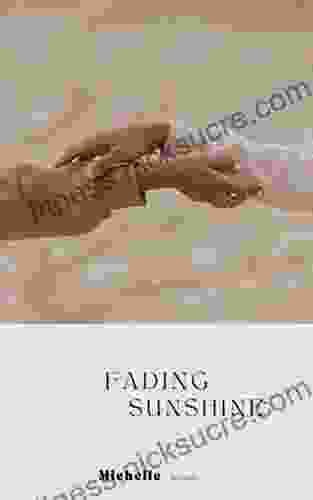
 Rubén DaríoFading Sunshine: The Enduring Legacy of Patti Hummel, America's Beloved Doll...
Rubén DaríoFading Sunshine: The Enduring Legacy of Patti Hummel, America's Beloved Doll...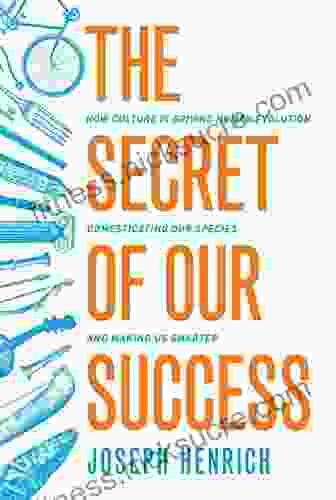
 Ralph Waldo EmersonHow Culture Is Driving Human Evolution: Domesticating Our Species and Making...
Ralph Waldo EmersonHow Culture Is Driving Human Evolution: Domesticating Our Species and Making... Walt WhitmanFollow ·6.2k
Walt WhitmanFollow ·6.2k Sean TurnerFollow ·18.7k
Sean TurnerFollow ·18.7k Edmund HayesFollow ·5.3k
Edmund HayesFollow ·5.3k Jaime MitchellFollow ·6.7k
Jaime MitchellFollow ·6.7k David BaldacciFollow ·6.8k
David BaldacciFollow ·6.8k Dale MitchellFollow ·4.7k
Dale MitchellFollow ·4.7k Ben HayesFollow ·17.4k
Ben HayesFollow ·17.4k Dan BellFollow ·4k
Dan BellFollow ·4k

 Derek Bell
Derek BellReflections For Your Heart and Soul: A Journey of...
In the depths of...

 Joseph Conrad
Joseph ConradThe Heroines Club: Empowering Mothers and Daughters
The Heroines Club...
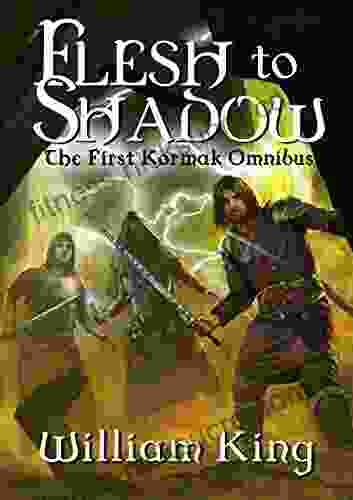
 Milan Kundera
Milan KunderaThe First Kormak Omnibus: A Literary Expedition into the...
Prepare to embark on an extraordinary literary...
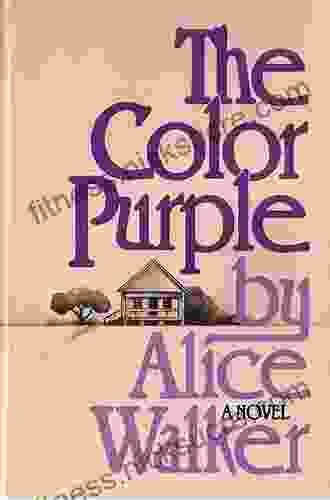
 W.H. Auden
W.H. AudenThe Color Purple: A Journey of Love, Resilience, and...
The Color Purple, a groundbreaking novel...
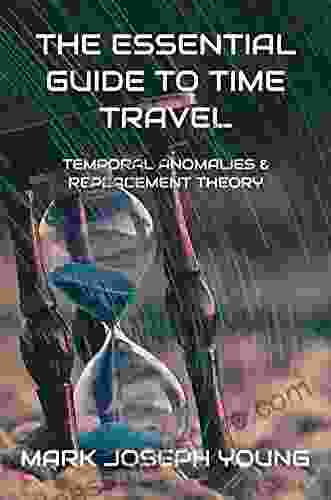
 Harvey Hughes
Harvey HughesTemporal Anomalies and Replacement Theory: Unraveling the...
: The Enigma of Time Time,...
4.4 out of 5
| Language | : | English |
| File size | : | 1953 KB |
| Text-to-Speech | : | Enabled |
| Screen Reader | : | Supported |
| Enhanced typesetting | : | Enabled |
| Word Wise | : | Enabled |
| Print length | : | 260 pages |
| Lending | : | Enabled |


